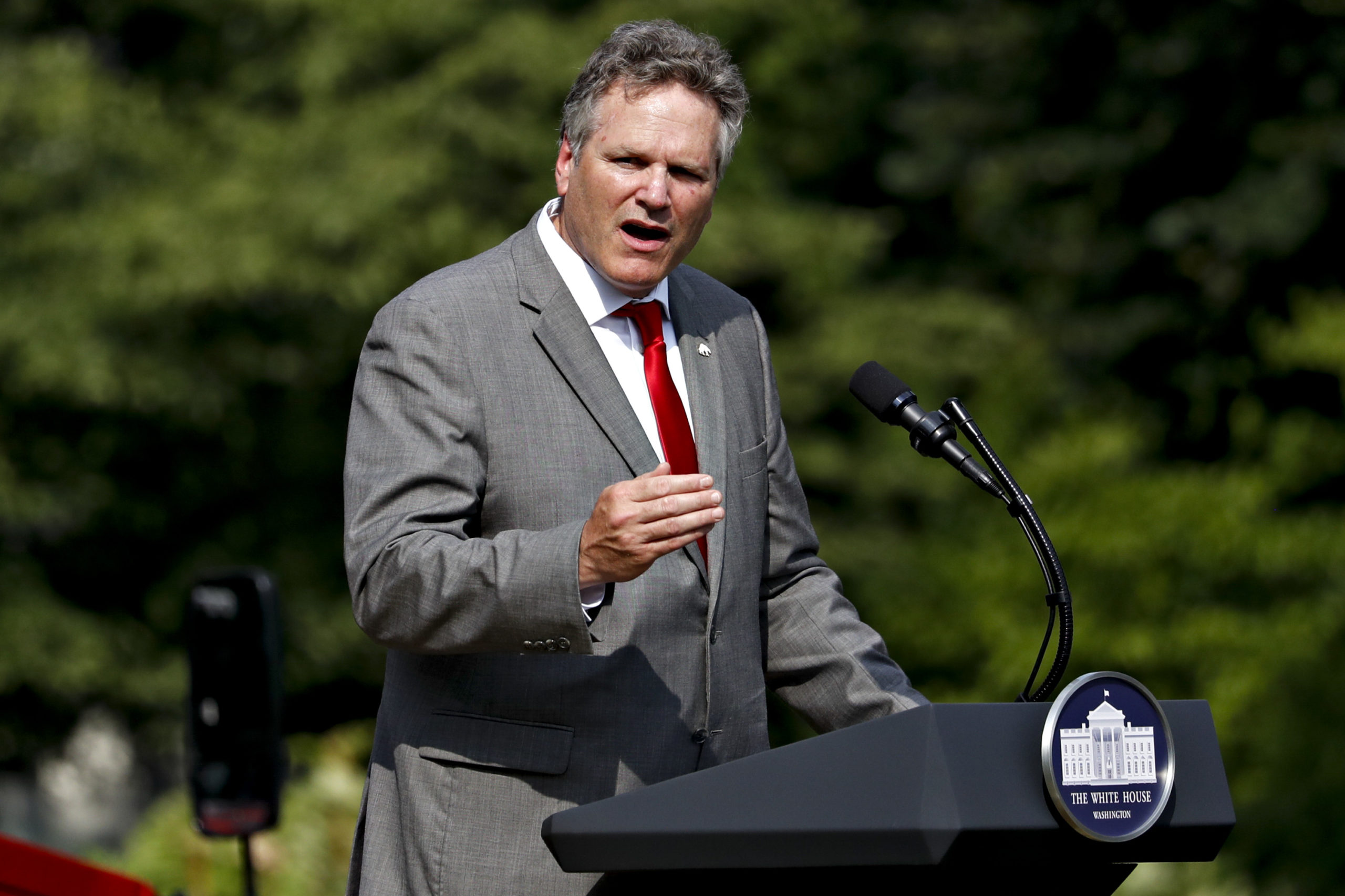Alaska’s governor wants the state to cut ties with banks who shun Arctic oil drilling
The state does business with several major banks that have adopted policy against financing Arctic oil development.

With all six major U.S. banks adopting policies against financing new Arctic oil development — and now five major Canadian banks doing the same — Alaska Gov. Mike Dunleavy has announced his plan to retaliate.
Dunleavy, in a statement, said he plans to introduce legislation that would require state departments and agencies to sever ties with financial institutions adopting policies against Arctic oil lending.
“We are the only arctic state in the nation. For over 40 years, the United States has benefited greatly from exploration and development of our arctic resources,” Dunleavy said in a statement. “It makes no sense for Alaska to allow financial institutions to benefit handsomely from Alaska’s financial activities on one hand, while working against our interests on the other. Oil and gas exploration in the arctic has created thousands of jobs and billions of dollars in revenue benefiting Alaskans and the country as a whole.”
Dunleavy described his planned legislation as economic protection for the state.
“If a group of financial institutions want to make a political statement with their investment strategy, that is their prerogative — but if Alaska does not have a robust oil and gas industry our future is not bright. It is my job to protect Alaska and its economic future,” he said in the statement.
No draft of the legislation is available, and governors’ bills cannot be pre-filed, unlike those submitted by lawmakers, Dunleavy spokesman Jeff Turner said in an email. Alaska’s 2021 legislative session is scheduled to start on Jan. 19.
Turner did not respond to a question about how a boycott of the major financial institutions would affect Alaska state business.
Andy Moderow, Alaska state director of the Alaska Wilderness League, said the Dunleavy plan, if enacted, runs counter to free-market principles and would ultimately hurt Alaska if enacted.
“Gov. Dunleavy is blaming the messenger while missing the broader message of why the largest U.S. banks have ruled out financing Arctic Refuge drilling,” Moderow said in a statement. “The message we should heed as Alaskans is clear: Speculative, high cost projects in places like Alaska’s Arctic are no longer attractive to investors, especially with the realities of climate change and as more lucrative opportunities in renewable energy or unconventional oil plays down south exist. This legislation won’t bring us back to the heyday of the 1970s, nor will it create another Prudhoe Bay. Geology combined with fiscal reality determines that, not press releases.”
Of the banks targeted by Dunleavy’s planned legislation, many have long done financial business with Alaska state departments and agencies, underwriting lending projects and providing investment guidance.
J.P. Morgan Asset Management, part of JPMorgan Chase, is one of the external managers of the Alaska Permanent Fund, for example. The fund is the state’s oil-wealth endowment, worth $65 billion as of the end of October.
Bank of America, JPMorgan and Barclays, some of the institutions with policies against financing Arctic oil development, are among the underwriters of bonds issued this year and in 2019 by the Alaska Housing Finance Corp.
Dunleavy’s announcement of planned legislation came shortly after that two major Canadian banks added themselves to the list of that country’s banks boycotting any financing of oil development in the Arctic National Wildlife Refuge or in the Arctic as a whole.
The Bank of Nova Scotia, commonly called Scotiabank, and the Canadian Imperial Commerce Bank round out a list of the top five Canadian banks with environmental policies that forbid the financing of either Arctic refuge oil development specifically or Arctic oil development more generally.
In addition to the six top U.S. banks and the five top Canadian banks, there are several more banks and financial institutions shunning ANWR or any Arctic oil development, including major European and Australian institutions.
One U.S. bank not on the list is Bank of New York Mellon. That bank has a securities-lending contract with the Alaska Permanent Fund that is mentioned in the 2020 annual report. Bank of New York Mellon has a sustainability policy, but it does not mention Arctic oil.
Meanwhile, the Gwich’in Steering Committee and other opponents of ANWR oil development — having secured commitments from major banks — are now seeking to persuade insurance companies to refrain from doing business that would support development activities in the refuge.
Last week, the Zurich-based insurer Swiss Re announced that it will not provide policies for companies seeking to do oil development in the refuge.
“The Arctic National Wildlife Refuge in northeast Alaska is an IUCN category IV National Park and as such in scope of our policy on protected areas. We can therefore confirm that Swiss Re will abstain from providing re/insurance or investment support for projects related to exploration, production, or transportation of oil and gas in the Arctic Refuge protected area,” the company said in a Dec. 10 letter to the Gwich’in Steering Committee.
Another insurance company, France-based Axa SA, said it has had a policy since 2018 of refusing to underwrite any development in the Arctic refuge.